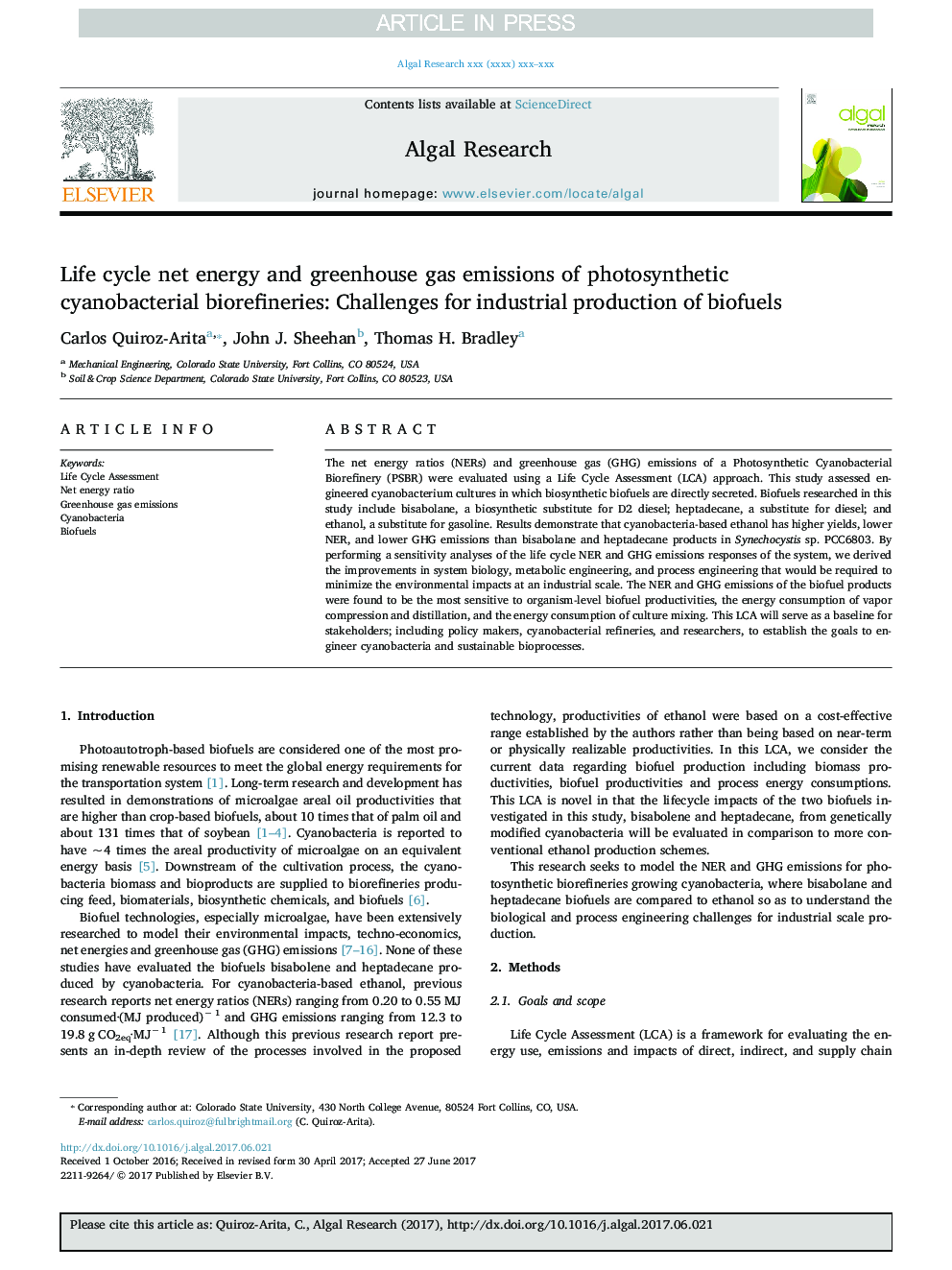| کد مقاله | کد نشریه | سال انتشار | مقاله انگلیسی | نسخه تمام متن |
|---|---|---|---|---|
| 5478313 | 1521807 | 2017 | 8 صفحه PDF | دانلود رایگان |
عنوان انگلیسی مقاله ISI
Life cycle net energy and greenhouse gas emissions of photosynthetic cyanobacterial biorefineries: Challenges for industrial production of biofuels
ترجمه فارسی عنوان
انرژی خالص چرخه حیات و انتشار گازهای گلخانه ای فرسایش ساینده های بیوفیلتر: چالش های تولید صنعتی سوخت های زیستی
دانلود مقاله + سفارش ترجمه
دانلود مقاله ISI انگلیسی
رایگان برای ایرانیان
کلمات کلیدی
موضوعات مرتبط
مهندسی و علوم پایه
مهندسی انرژی
انرژی های تجدید پذیر، توسعه پایدار و محیط زیست
چکیده انگلیسی
The net energy ratios (NERs) and greenhouse gas (GHG) emissions of a Photosynthetic Cyanobacterial Biorefinery (PSBR) were evaluated using a Life Cycle Assessment (LCA) approach. This study assessed engineered cyanobacterium cultures in which biosynthetic biofuels are directly secreted. Biofuels researched in this study include bisabolane, a biosynthetic substitute for D2 diesel; heptadecane, a substitute for diesel; and ethanol, a substitute for gasoline. Results demonstrate that cyanobacteria-based ethanol has higher yields, lower NER, and lower GHG emissions than bisabolane and heptadecane products in Synechocystis sp. PCC6803. By performing a sensitivity analyses of the life cycle NER and GHG emissions responses of the system, we derived the improvements in system biology, metabolic engineering, and process engineering that would be required to minimize the environmental impacts at an industrial scale. The NER and GHG emissions of the biofuel products were found to be the most sensitive to organism-level biofuel productivities, the energy consumption of vapor compression and distillation, and the energy consumption of culture mixing. This LCA will serve as a baseline for stakeholders; including policy makers, cyanobacterial refineries, and researchers, to establish the goals to engineer cyanobacteria and sustainable bioprocesses.
ناشر
Database: Elsevier - ScienceDirect (ساینس دایرکت)
Journal: Algal Research - Volume 26, September 2017, Pages 445-452
Journal: Algal Research - Volume 26, September 2017, Pages 445-452
نویسندگان
Carlos Quiroz-Arita, John J. Sheehan, Thomas H. Bradley,
